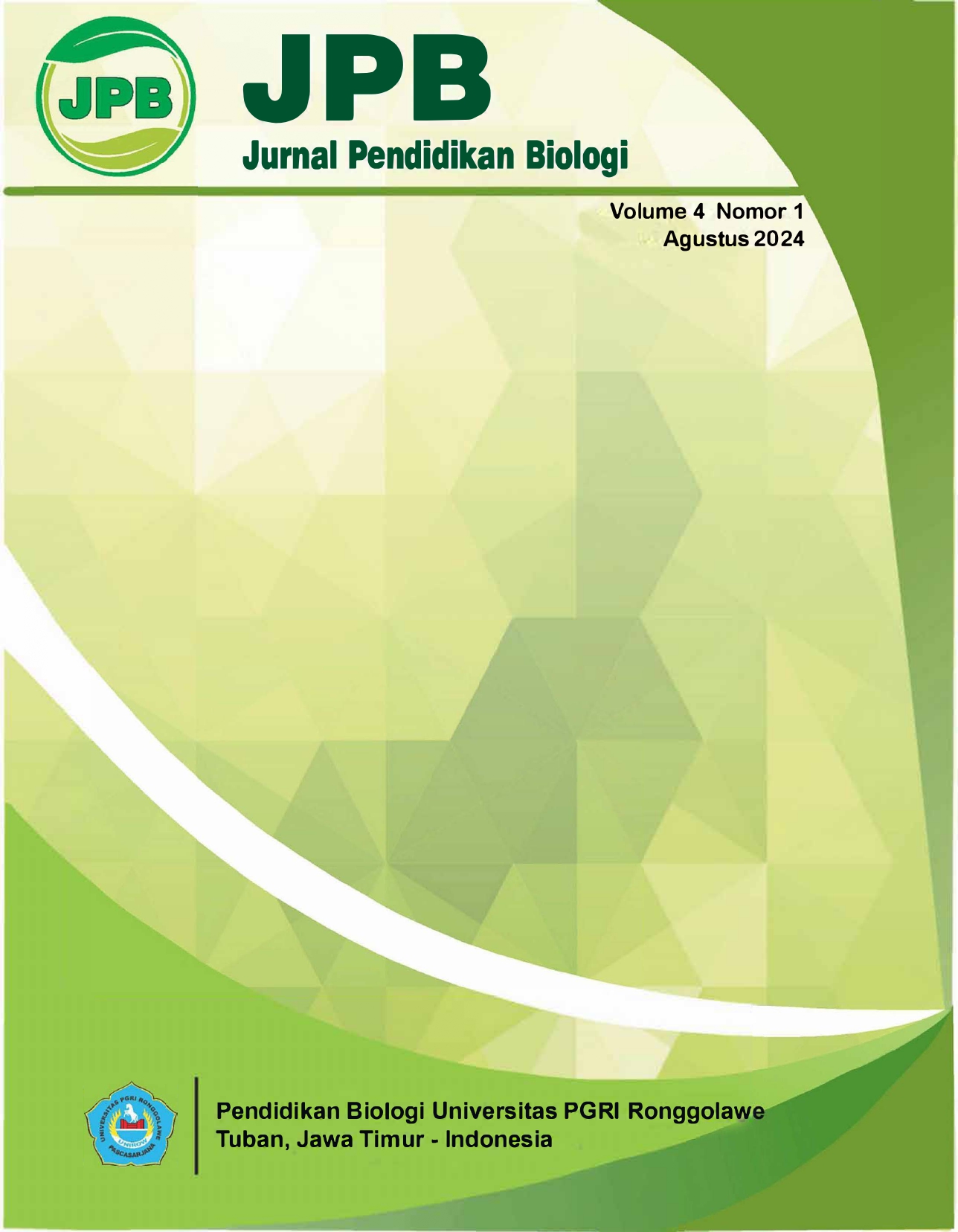PENGEMBANGAN E-LKPD BERBASIS LITERASI SAINS UNTUK MENINGKATKAN KEMAMPUAN BERPIKIR KRITIS SISWA KELAS V SDN LALADAN
DOI:
https://doi.org/10.55719/jpb.v4i1.1183Keywords:
critical thinking, level of validity, science literacy, e-lkpdAbstract
Critical thinking is a thinking ability that includes the ability to analyze, draw conclusions, interpret, explain, and self-regulate the thought process that is carried out which is really needed by someone in an effort to solve problems. One way to support and improve critical thinking skills is scientific literacy. Scientific literacy is the ability to use scientific knowledge, identify questions, draw conclusions based on evidence to understand and help make decisions regarding nature and the changes made to nature through human activities. Researchers conducted research entitled "Development of E-LKPD Based on Scientific Literacy to Improve Critical Thinking Ability of Class V Students at SDN Laladan". The aim of this research is to determine the level of validity of E-LKPD based on scientific literacy to improve the critical thinking abilities of fifth grade students at SDN Laladan. This research uses a research and development approach. The model used by researchers is the ADDIE model (Analysis, Design, Development, Implementation, Evaluation). The data analysis technique used is qualitative and quantitative descriptive data analysis. Quantitative data uses validation sheets from language experts, materials and media. The final conclusion on validity is as follows: (1) the level of validity of linguists is declared very valid with a score of 92%. (2) the level of validity of the material expert is declared very valid with a score of 94%. (3) the level of validity of media experts is declared very valid with a score of 92%. The results of this validation show that the scientific literacy-based E-LKPD that was developed was declared valid and ready to be used to improve the critical thinking skills of fifth grade students at SDN Laladan.
Downloads
References
Cholifah, Shinta Nur, and Dian Novita. 2022. “Pengembangan E-LKPD Guided Inquiry-Liveworksheet Untuk Meningkatkan Literasi Sains Pada Submateri Faktor Laju Reaksi.” Chemistry Education Practice 5(1): 23–34.
Karira, Noer Fadzillah, Titin Sunarti, Mukhayyarotin Niswati R.J, and Woro Setyasih. 2023. “Validitas Instrumen Tes Berbasis Literasi Sains Untuk Mengukur Keterampilan Berpikir Kritis Siswa SMA Pada Materi Energi Terbarukan.” Inovasi Pendidikan Fisika 12(2): 118–25.
Marisyah, Ab, Firman Firman, and Rusdinal Rusdinal. 2019. “Pemikiran Ki Hadjar Dewantara Tentang Pendidikan.” Jurnal Pendidikan Tambusai 3(3): 1514–19.
Mulyani, Sri et al. 2022. “Model Blended Learning Berbasis Multiple Representasi Untuk Pembelajaran Kimia Di SMA.” Jurnal Penelitian Pendidikan 25(1).
Purnama, Agus, and Suparman Suparman. 2020. “Studi Pendahuluan: E-LKPD Berbasis PBL Untuk Meningkatkan Kemampuan Literasi Matematis Peserta Didik.” JKPM (Jurnal Kajian Pendidikan Matematika) 6(1): 131–40.
Puspita, Vivi, and Ika Parma Dewi. 2021. “Efektifitas E-LKPD Berbasis Pendekatan Investigasi Terhadap Kemampuan Berfikir Kritis Siswa Sekolah Dasar.” Jurnal Cendekia: Jurnal Pendidikan Matematika 5(1): 86–96.
Rohman, Abdul. 2022. “Literasi Dalam Meningkatkan Kemampuan Berpikir Kritis Di Era Disrupsi.” EUNOIA (Jurnal Pendidikan Bahasa Indonesia) 2(1): 40.
Sari, Elen Mayanti Jiyat. 2016. “Profil Berpikir Kritis Siswa SMP Dalam Menyelesaikan Masalah Geometri Ditinjau Dari Gaya Kognitif Visualizer Dan Verbalizer.” MATHEdunesa 5(2).
Sugiyono, Sugiyono. 2016. “Metode Penelitian Kuantitatif, Kualitatif, R&D.” Bandung: Alfabeta: 1–11.
Sumanik, Novike Bela. 2022. “Pengembangan Lembar Kerja Peserta Didik Elektronik Berbasis Literasi Sains Untuk Melatih Kemampuan Berpikir Kritis.” Jurnal Penelitian Pendidikan 25(2).




